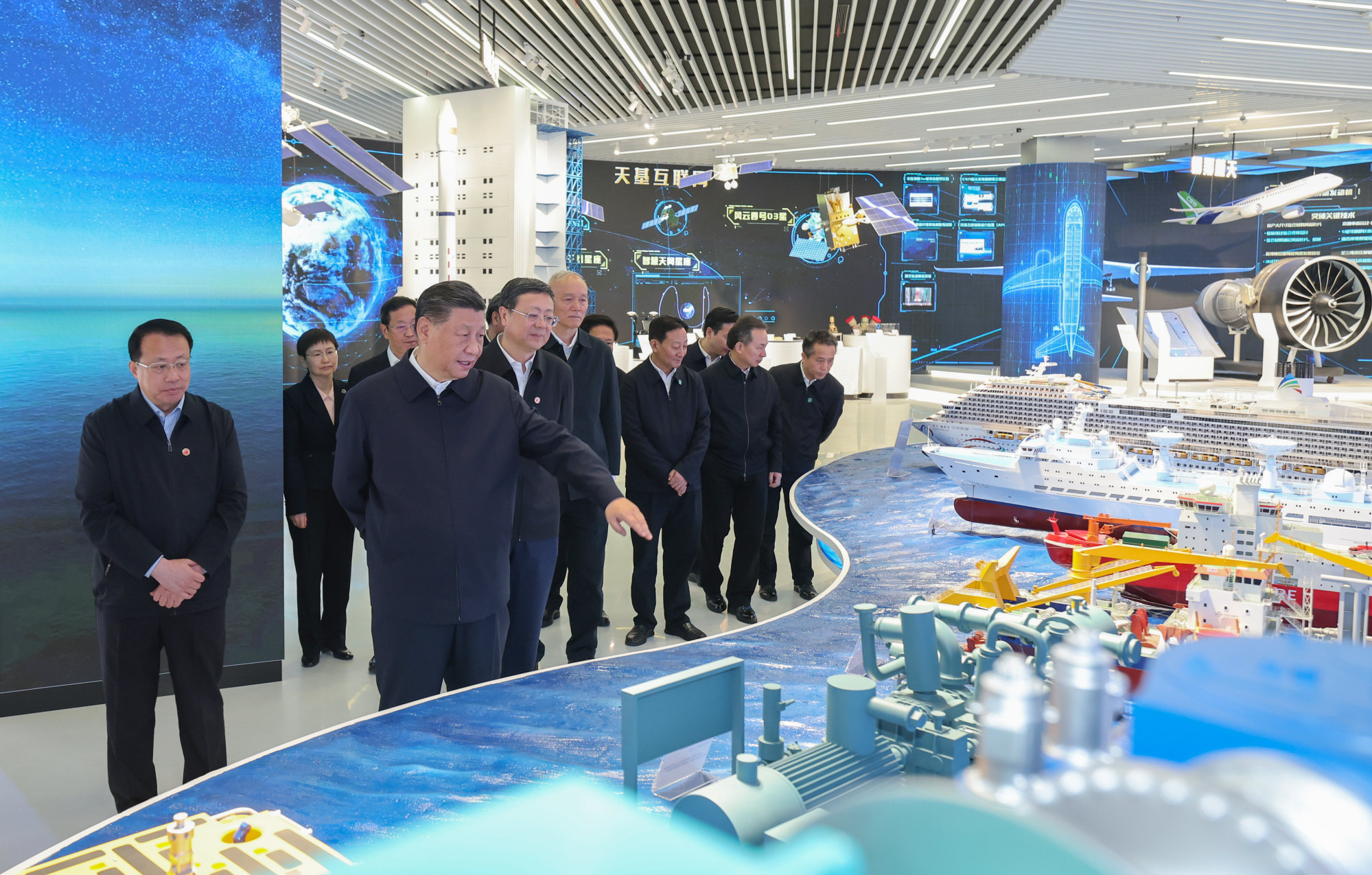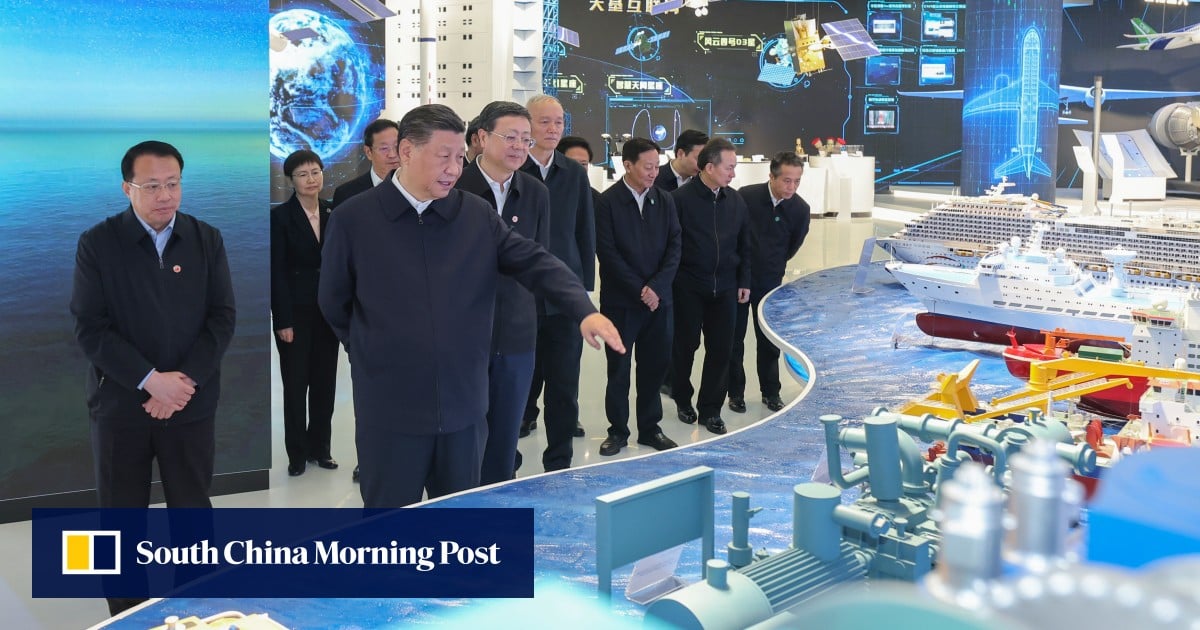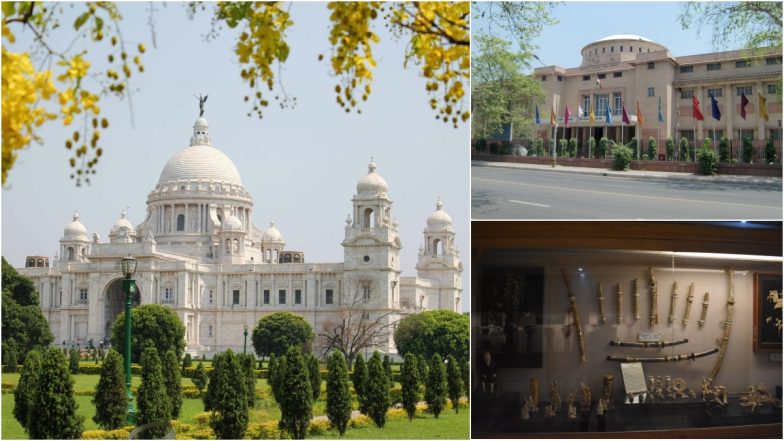“[The region] must focus on the areas of science and technology, industry, finance and the major infrastructures, which are related to national and regional security, and strengthen risk prevention … and capacity building, so as to consolidate our foundation for secure development,” Xi said.
The Yangtze Delta, as one of China’s most prosperous areas and a “showcase” for the advantages of its socialist system, must also speed up integration in areas including infrastructure, industrial development, economic opening up, environmental protection and supply chain expansion, so that it could “become a driver of development for the whole country”, he added.
“It is necessary to steadily expand the systematic opening up of the financial sector, enhance the facilitation of cross-border investment and financing, strengthen the prevention and control of risks in the whole process, and better safeguard the country’s financial security.”
Xi earlier visited the Shanghai Futures Exchange, the Shanghai Science and Technology Innovation Exhibition and an affordable housing project over Tuesday and Wednesday, state broadcaster CCTV reported.
Xi has repeatedly stressed technological self-reliance to enhance China’s soft power and “to prevent being strangled by foreign countries”, a reference to the US-led containment of Beijing’s hi-tech ambitions.
“China’s development is driven by innovation, suppressing China’s science and technology is suppressing China’s high-quality development, depriving the Chinese people’s rights to develop,” he said.
Firewall: expo panellists talk up tech as China’s supply chain shield
Firewall: expo panellists talk up tech as China’s supply chain shield
The belt covers seven more provinces in the upper reaches of the river, apart from Shanghai and its three neighbouring provinces.
The sprawling belt is China’s biggest economic zone with the highest economic density, according to official figures that show it covers about 21 per cent of the nation’s total land area and more than 40 per cent of the population, while accounting for more than 45 per cent of China’s gross domestic product. It also has nine of China’s 21 pilot free-trade zones.
The three places in Shanghai Xi visited revealed his emphasis on the city’s competitiveness, innovation and ability to provide public support, CCTV said on Thursday.

The futures exchange, founded in 1999, has listed 23 futures products and nine options products, covering metals, energy, chemicals, shipping and other fields. It is one of the three largest non-ferrous metal pricing centres in the world, according to CCTV.
During a visit in 2019, Xi had asked the city to strengthen its role in global resource allocation.
At the sci-tech exhibition, he focused on research and innovation, especially key and core technologies, Xinhua reported.
“He said he hopes basic research can lead to industrial application, and vice versa,” Luo Dajin, director of the Science and Technology Commission of Shanghai Municipality, told Xinhua.
Meet the shadow agents searching the world in China’s talent war
Meet the shadow agents searching the world in China’s talent war
The affordable accommodation project visited by Xi was in Minhang district’s Maqiao AI hub, home to hundreds of innovative companies.
The project strives to house employees from industrial estates in the area, including engineers, city maintenance staff and food delivery drivers.
Xi has repeatedly said, “The cities are built by the people and are for the people”.
In 2019, he said in Shanghai that city planning and remodelling should focus on the needs of the public first.
The work conference regarding development of the Yangtze River Delta on Thursday reflected the president’s resolve to invigorate the mainland’s most affluent region.
According to local government and financial industry officials with knowledge of the matter, a series of market liberalisations to spur regional growth will be rolled out as a result of the meeting.
China’s Communist Party signals further delay to key economic session
China’s Communist Party signals further delay to key economic session
The conference came on the heels of a Politburo meeting on Monday, when the 24-man decision-making body of China’s ruling Communist Party announced its decision to reinforce the development of the Yangtze River Economic Belt.
At the opening of the China International Import Expo in November 2018, the president declared that integration of the Yangtze River Delta, an area nearly the size of Germany and home to 240 million people, was a national strategy.
Under the strategy, Shanghai and its three neighbouring provinces are required to better connect with each other to create synergy.
The goal is to adjust industrial mixes, build highways, ports, railways and bridges, and allocate land resources to chase high-quality growth.




:quality(85):upscale()/2024/05/17/905/n/3019466/d9208ced6647c1a19c9339.72267300_.jpg)

